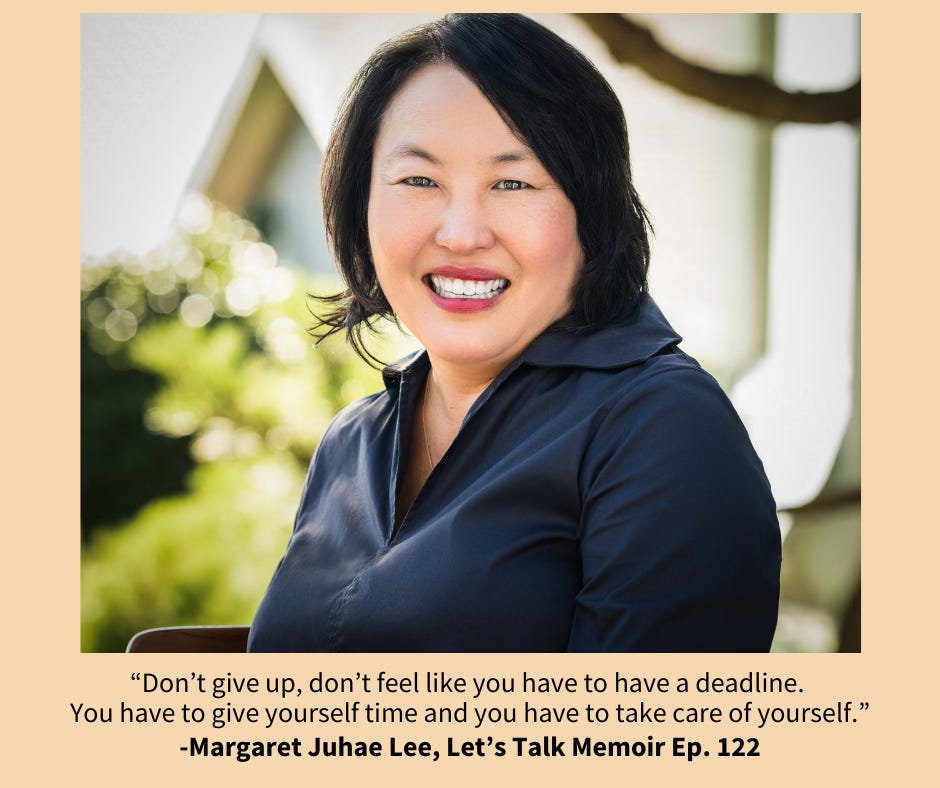Welcome to September’s Substack, coming in just under the wire! I almost didn't make it.
Over the course of an emotionally intense summer I found I had very little creative energy left over; my mind slowed and squeaked almost to a halt. My podcast was fine –reading memoirs and interviewing memoirists felt good, it’s a role I love, and my production stayed the same. But I couldn’t seem to wake my brain up enough to generate a paragraph or turn a phrase without strenuous effort. Corralling my thoughts to craft what I was trying to say was harder than I can ever remember it being. This was a problem because I had pitched an editor an essay, the editor had given me the green light, and now I was facing a looming deadline with what I was beginning to fear was an empty well.
Was I worn out? Was age catching up with me? Perhaps, I became convinced, like so many writers do, I was out of ideas; that my writing life was officially over.
Even though I had a sense of what I was attempting to address in my essay, my ability to do so with elegance, speed, or enthusiasm ground to a halt. I tried working at my desk, on the sofa with my cozy pups, at a coffee shop, both with and without music, but I couldn’t jumpstart the process. The effort, I told my TV-writer sister, left me feeling as if I was moving cinder blocks around in my head.
I truly began to believe I had nothing left to say, and feared I was permanently tapped out. My sister helped me stop panicking long enough to see that I was likely emotionally depleted, and I needed to back off and give myself grace. It’s true that when I’m under duress I sometimes go into a bit of a freeze psychologically, probably subconsciously to try to staunch the bleeding. Historically, after the trouble subsides and I can breathe a bit better, I am able to take a long, braver look at what has happened and attempt to turn it into art.
I wanted to be patient with myself, but I soon got revisions back from my editor as well as a pub date. I stared at the words on my screen wondering how in the world I was going to draft more material when I felt so stuck.
I was almost at my wit’s end and then I remembered what I often need to do when I’m having trouble figuring out a piece of writing: Get curious so I can go deeper.
With a 16 oz. dark roast in my hand and Taylor Swift songs playing over coffee shop speakers in what sounded like an endless loop, I forced myself and my sludgy July brain to plumb my essay for meaning. To find more resonance in what I was trying to say.
This is how I approached my revision which I’m sharing here in the hopes you might also find it useful:
Think of this as a generative free-write. Your pages are about to get messy because you are going to play.
Go sentence by sentence and ask yourself what you are really trying to say in that moment, not generally, specifically. Why did this sentence end up in your piece in the first place and what else does it mean? Write about that.
You might even go word by word, and as you do, commit to the process of breaking open what you’ve already got on the page to write more and go farther. Approach each new beat in your essay as its own Matryoshka doll. Every time you push yourself to delve deeper, you get closer to the heart of what you are trying to say.
Think of this step in your writing process like the difference between a cursory scan of a room where you’ve misplaced something and a bone-deep search. You’re going to metaphorically toss everything on the floor, rifle through the drawers, fish out old scraps of paper and photos, and really look for what it is you are missing.
Once you’ve done this for most, if not all of your work-in-progress, it’s time to winnow down. Take some time away from this project or you can go directly to this step if you’re ready. Begin cutting out material that feels like filler or on the general side. You can dump the excess into another document for another time if you’d like.
Finally, scan your pages for the moments that feel authentically like they belong there and ask yourself how each earns a place:
-Is it specific?
-Is it vulnerable?
-Does it add something new or fresh to the piece?
You might end up using merely a fraction of the new material you unearthed, maybe only a sentence or two which is what happened to me with my essay in July, but you will have enriched what you already had in nuanced ways.
I also took myself through this process with yet another essay I’d been working on for some time that took me all summer to finish because I just knew it wasn’t ready.
I do believe our writing life has seasons and embracing what we need and how we are changing as writers is important. It’s a balance between pushing ourselves and respecting where we are and what we can manage.
On the podcast
This week on the Let’s Talk Memoir
whose memoir is Starry Field: A Memoir of Lost History joins me for a conversation about knowing ourselves as writes, not giving up, capturing family voice and much, much more. This episode debuts first thing October 1st on your favorite podcast platform.Coming up!
I’m thrilled to be a visiting writer at DePauw University this week. I’ll be doing a reading and book signing on Tuesday night and then I’ll be a guest in two writing seminars. I’m so looking forward to meeting with these students and professors. I will share photos in my next newsletter.
In mid-October I have new work coming out in Parley Lit, which I will also link to in October’s newsletter.
There’s lots more in store on Let’s Talk Memoir this season and as well as upcoming memoir offerings I’ll announce here in this Substack. As always, you can subscribe for free, and if you know a memoir writer who would appreciate these resources, please share Let’s Talk Memoir with them. Thank you!
Until next month, all my best to you.
Ronit




Thanks for sharing so honestly about your experience and for all you do for the writing community. I struggled to write over the summer too. I loved the tips you shared with all of us. I can't wait to read your next publication.
Thanks for sharing your experience with a freeze in creativity and how you came through it. You give us so much with "Let's Talk Memoir" podcast that perhaps it is taking up a lot of your energy? But I don't really want you to slow down. The podcast is such a gift but I loved your memoir, "When She Comes Back" so it's important for you to keep writing!